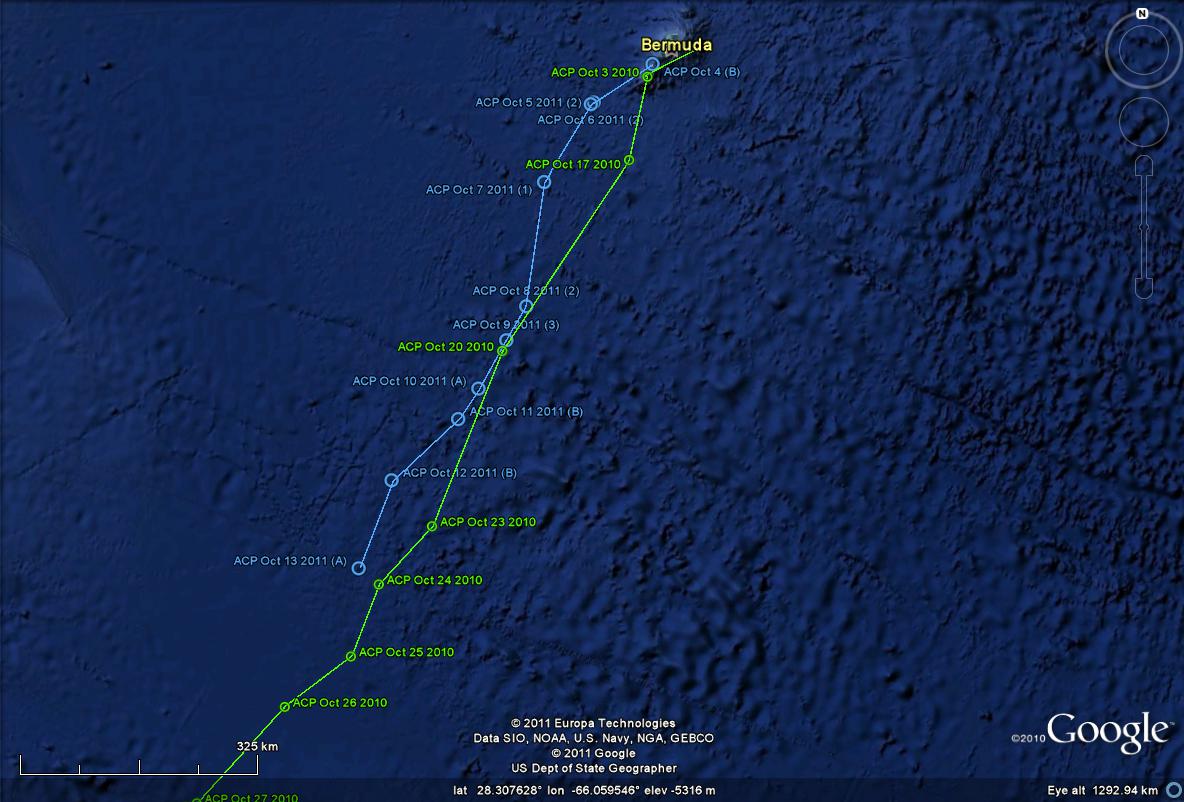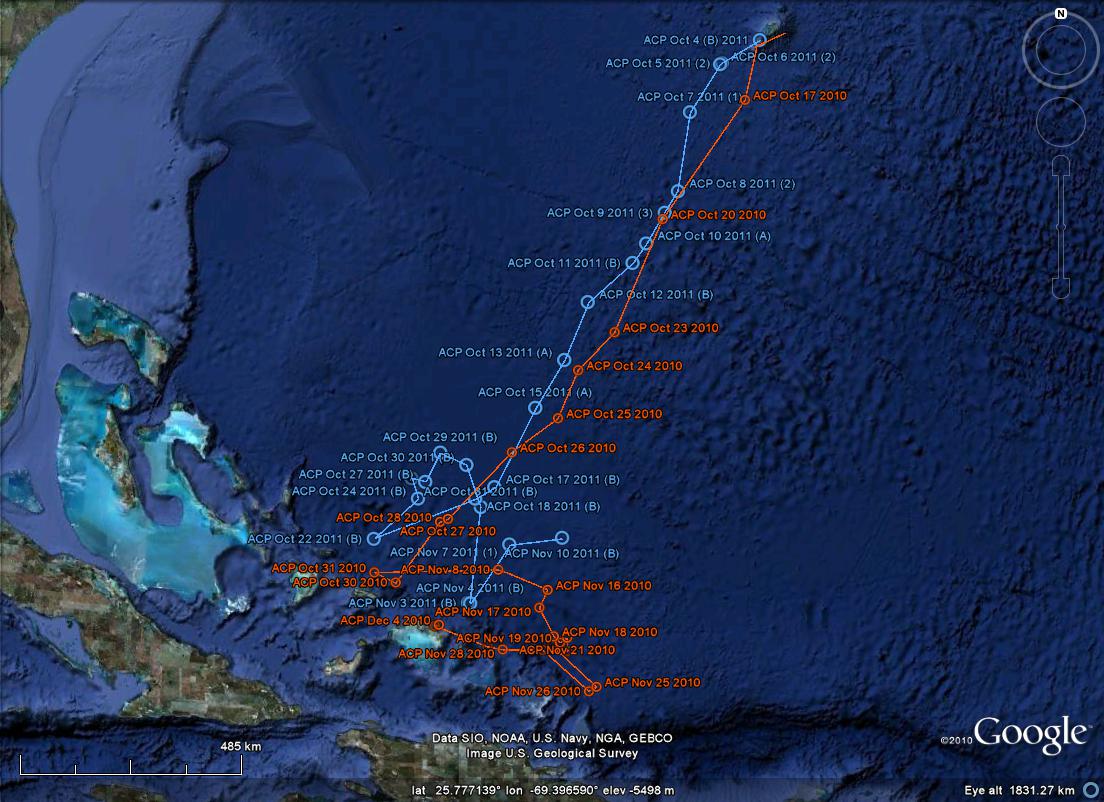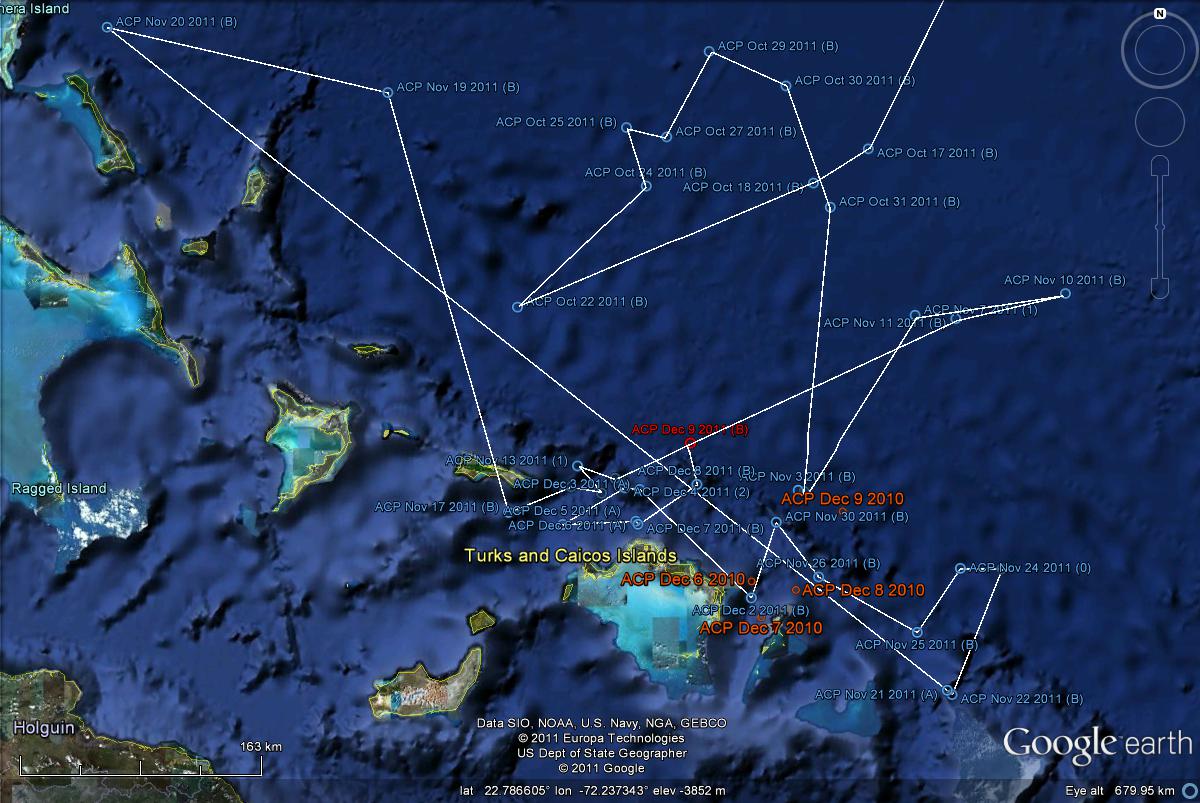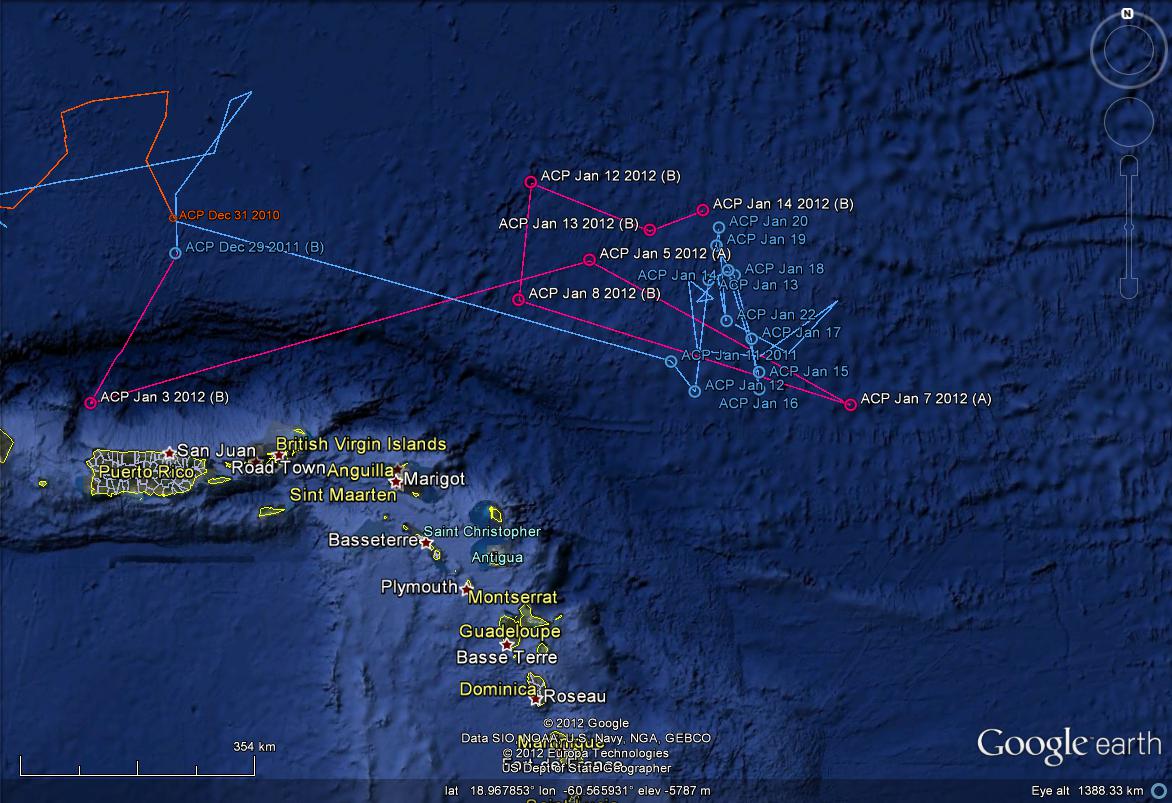The Bermuda Shark Project, founded in 2005 by Dr. Neil Burnie, Jeffrey Manson, Tim Hasselbring and Choy Aming, conducts research focusing on the satellite tagging of tiger sharks around the Bermuda Platform. As the top predator in our marine ecosystem, large sharks are clear indicators of the ecosystem's health. Yet they are heavily overfished worldwide, and the population has declined by 75% in the last few decades. The Bermuda Shark Project tracks the movements of sharks on or around the Bermuda Platform to better understand the range of these important and often maligned fish. Information collected is important to fisheries management and conservation policies, particularly now, given the increase in finning and long-lining.
While the National Ocean and Atmospheric Association (NOAA) has internationally recognized plastic numbered tags available at a minimal cost, these only allow for visual identification of sharks. In 2008, the Bermuda Shark Project began to use satellite tags that allow for much more intensive and accurate tracking. Results from satellite tags are fantastic. One shark was tracked from Bermuda to the Turks and Caicos Islands, approximately 1,000 miles away.
Dr. Brad Wetherbee, a shark researcher at the University of Rhode Island provides rigor to the project, ensuring scientific accuracy. Information is shared on a regular basis with the goal that Bermuda data will help build a more complete picture for tiger sharks in the Atlantic.



